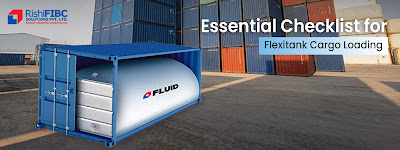The Future of Bulk Chemical Transport: Embracing Flexitanks for Efficiency and Safety
In the ever-evolving landscape of industrial logistics, the transportation of bulk chemicals presents a unique set of challenges. From maintaining the integrity of the chemicals to ensuring safety and compliance with environmental regulations, the stakes are high. However, the advent of flexitanks has revolutionized the way businesses handle bulk chemical transport, offering a safer, more cost-effective, and efficient solution.
Flexitanks are large, flexible bags designed to convert standard shipping containers into safe, voluminous liquid containers. They are particularly suited for the transportation of non-hazardous chemicals. Here’s why flexitanks are becoming the preferred choice for bulk chemical transport:
1. Enhanced Safety
Safety is paramount in the chemical industry. Flexitanks are engineered to reduce the risk of leaks and spills significantly. Made from high-quality, multi-layer polyethylene and polypropylene, flexitanks provide a tough, durable barrier that can withstand the rigors of long-distance transport. The single-use nature of flexitanks eliminates the risks associated with contamination and the reuse of traditional containers. Moreover, the fully enclosed system of flexitanks protects the cargo from exposure to air and impurities, which is crucial for many sensitive chemicals.
2. Cost Efficiency
Flexitanks offer remarkable cost advantages over traditional drums and IBCs (Intermediate Bulk Containers). By maximizing the volume of liquid that can be shipped within a single container, flexitanks can hold up to 24,000 liters, reducing the number of containers needed for large shipments. This efficiency translates into significant savings on shipping costs. Additionally, the lightweight nature of flexitanks lowers fuel consumption during transport. The elimination of return shipments for empty containers and the need for container cleaning further cut down logistical expenses.
3. Environmental Benefits
Flexitanks contribute positively to environmental sustainability efforts. As single-use containers, they are recycled after their initial use, which helps reduce the waste associated with the more traditional methods of chemical transport. The manufacturing process of flexitanks uses fewer resources than that of drums and IBCs, and their disposability means less environmental impact from cleaning chemicals and processes.
4. Simplified Logistics
The logistical simplicity of using flexitanks is unmatched. They are easy to install and require minimal handling compared to drums and IBCs, which need to be loaded, unloaded, and stacked individually. This not only speeds up the process but also reduces labor costs. For businesses looking to streamline operations and boost productivity, flexitanks provide a straightforward and reliable solution.
5. Versatility
Flexitanks are highly adaptable and can transport a wide range of non-hazardous chemicals such as base oils, latex, glycols, and emulsions. This versatility makes them suitable for diverse industries, including pharmaceuticals, cosmetics, and food and beverages, broadening their utility beyond just industrial chemicals.
Adoption in the Industry: The chemical industry is increasingly recognizing the benefits of flexitanks. Companies that adopt this technology find that it not only meets their logistical and safety needs but also enhances their competitive edge in the market. The adaptability and scalability of flexitanks make them ideal for companies looking to expand into new markets without significant upfront investments in infrastructure.
In conclusion, the use of flexitanks in bulk chemical transport is more than just a trend; it’s a transformative shift that enhances operational efficiency, reduces costs, and improves safety. As the global chemical industry continues to grow and evolve, flexitanks stand out as a smart solution for companies aiming to optimize their supply chains and align with sustainability goals. For more information on how flexitanks can revolutionize your chemical transport needs, visit Fluid Flexitanks.



Comments
Post a Comment